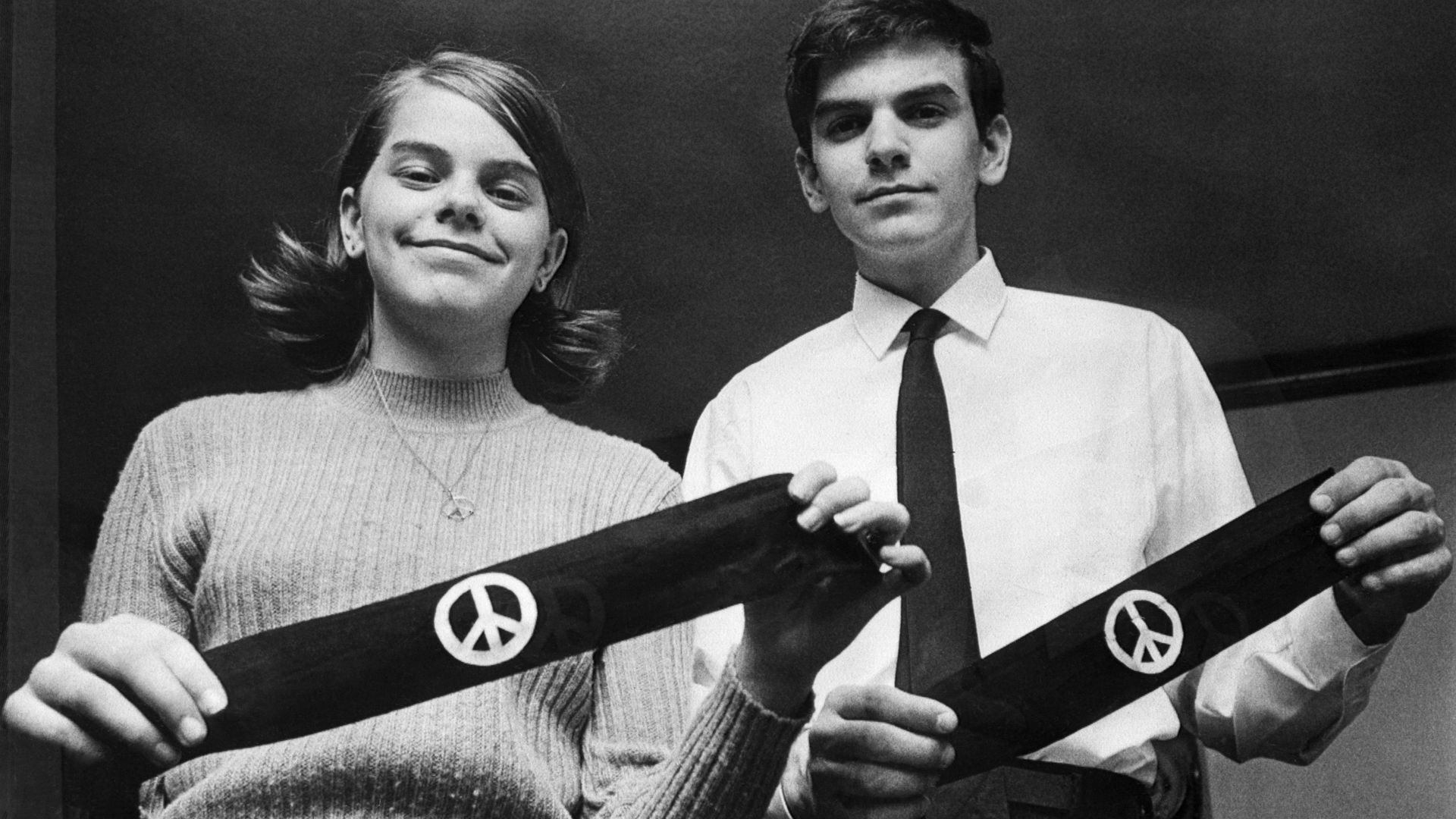Sep 16, 2022 - News
Free speech film features landmark Tinker v. Des Moines case
Add Axios as your preferred source to
see more of our stories on Google.

Mary Beth Tinker and her brother, John, in 1968. Photo: Bettmann Archive via Getty Images
Add Axios as your preferred source to
see more of our stories on Google.

Mary Beth Tinker and her brother, John, in 1968. Photo: Bettmann Archive via Getty Images